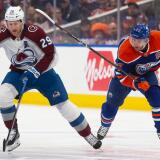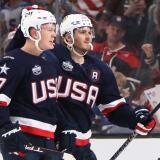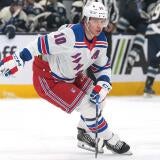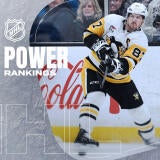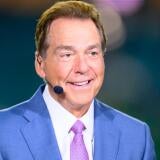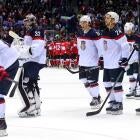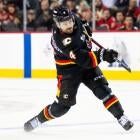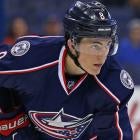NHL Preview: Penguins finally give Crosby, Malkin the help they need
The Pittsburgh Penguins have gone as far as Sidney Crosby and Evgeni Malkin have been able to take them in recent years. Now the two superstars finally have a supporting cast that could get them back to a Stanley Cup level.

When it comes to the Pittsburgh Penguins' most recent playoff exits there seems to be a belief that they have been the result of poor goaltending or defensive breakdowns. But that really hasn't been the case since they lost to the Philadelphia Flyers in the first round of the 2011-12 postseason in a wild series where neither team seemed to have any interest in playing defense.
In their past three playoff series losses (the 2013 Eastern Conference finals against the Boston Bruins, the 2014 second round against the New York Rangers, and the 2015 first round, also against the Rangers) it's been goal scoring, not goal prevention, that has been the biggest culprit. In the 16 games they played in those elimination series, they allowed an average of just 2.2 goals per game (and allowed more than three goals in a single game just twice), which should be good enough to not only win a playoff series, but also seriously compete for a Stanley Cup.
The problem has been that they managed to score an average of just 1.5 goals per game.
While Sidney Crosby and Evgeni Malkin take the majority of the blame for that (and it's true their scoring has dropped in the series where they've been eliminated), the biggest issue for the Penguins has been their complete lack of secondary scoring and their inability to pick up the slack when the top guys get shut down. When Crosby and Malkin score in the playoffs, the Penguins win. When they don't, the Penguins lose.
The solution shouldn't be to expect Crosby and Malkin to score more (because they're already among the most productive players in the NHL in the postseason). The solution should be -- and is -- to figure out how to get more offense from the rest of their lineup when Crosby and Malkin aren't scoring.
No matter how good they are or how well they play, your best players are not going to score every night in the NHL. That is simply the nature of the beast when the average NHL game ends with a 2-1 or 3-2 final score. There are only so many goals to go around, and every player is going to experience slumps from time to time, including in the playoffs. The problem for the Penguins has been that when Crosby and Malkin go a few games where they aren't scoring at a video game pace they had nobody else that could pick up the slack. When Jonathan Toews goes 24 playoff games with only three goals (as he did in 2013 when the the Chicago Blackhawks won the Stanley Cup) it doesn't prevent his team from winning because they have three other lines of scorers that can pick up the slack. The same is true with teams like Tampa Bay, Los Angeles, New York and everybody else that has played in the Stanley Cup Final in recent years.
For Pittsburgh, it's all on Crosby and Malkin, and you just can't win that way.
The Penguins attempted to address that this offseason by completely overhauling their group of forwards. They acquired Phil Kessel from the Toronto Maple Leafs in a blockbuster trade, a move that not only improves their top-line, but also improves their depth by bumping a player like Pascal Dupuis down into a depth role. They also brought in Eric Fehr, Nick Bonino, Matt Cullen and Sergei Plotnikov, giving them a lineup that should be able to put four scoring lines on the ice.
After finishing 19th in the league in goals scored last season, and managed just seven goals in five playoffs, offense should no longer be a problem in Pittsburgh in 2015-16.

2015-16 season at a glance
New additions: Phil Kessel, Eric Fehr, Nick Bonino, Matt Cullen, Sergei Plotnikov, Adam Clendenning, Tim Erixon, Tyler Biggs
Key losses: Paul Martin, Christian Ehrhoff, Steve Downie, Blake Comeau, Craig Adams, Brandon Sutter, Thomas Greiss, Nick Spaling, Daniel Winnik, Max Lapierre
Top returning scorers: Sidney Crosby (77 GP, 28-56--84), Evgeni Malkin (69 GP, 28-42--70), Kris Letang (69 GP, 11-43--54)
Salary against cap: $69,392,196
Total remaining salary cap space: $2,007,084
Biggest question heading into 2015-16: How reliable will their defense be after their top pairing?
When healthy the Penguins had what would have been one of the best top-fours in the NHL last season with Kris Letang, Paul Martin, Christian Ehrhoff and Olli Maatta in the lineup. It was a great group that mixed solid defensive play (especially with Martin and Maatta) and mobility that could could join the rush and create a second wave of offense in the offensive zone.
Unfortunately for the Penguins injuries limited them to just 16 games together as a group (the Penguins went 10-4-2 in those games). By the end of the season and the playoffs they were without Letang, Maatta and Ehrhoff, which was not only a blow to the team defensively, but was also a crushing blow to the team offensively due to how much the Penguins rely on their defense to jump into the play, join the rush, and contribute in the offensive zone.
This summer Martin and Ehrhoff left in free agency (Martin to the San Jose Sharks, Ehrhoff to the Los Angeles Kings) and the other than acquiring Adam Clendenning in the Brandon Sutter trade and bringing back Sergie Gonchar on a tryout deal, they really didn't bring anybody in from outside the organization to replace them. And neither Clendenning or Gonchar will be suitable replacements.
The good news for the Penguins is Letang and Maatta are back and fully healthy. They will not only serve as their top defense pairing, but it's also going to be a pretty great pairing that can take over a game every time it is on the ice. Letang is a force with the puck and one of the most dynamic defenseman in the league, while Maatta is a solid, safe defensive player that also has enough skill to make plays on his own and join the rush. They should both be able to play 20-25 minutes per night in all situations and, as long as they're healthy, will be the foundation of their defense.
The problem is going to come on the second and third pairing because there is plenty of uncertainty.
As of now they have veterans Rob Scuderi and Ben Lovejoy somewhere on the roster, but neither should be counted on to play a significant role. The Penguins missed an opportunity to buy out Scuderi over the summer and is probably best served as an extra defensemen on most nights. Lovejoy, acquired in a deadline deal from the Anaheim Ducks, was forced to take on more responsibility and struggled mightily in those minutes.
Their best hope for success is the development of their younger defensemen like Derrick Pouliot, the No. 8 overall pick from the 2012 draft, and Brian Dumoulin, acquired from the Carolina Hurricanes in the Jordan Staal trade that same year. Both have plenty of talent and upside but they are still wild cards at this point. Their development, as well as their ability to hide Scuderi and Lovejoy, will go a long toward determing how good the defense can be in 2015-16.
Season outlook: Given the way the Penguins backed into the playoffs in 2014-15 (they needed a win on the final day of the regular season just to get in as the eighth seed in the Eastern Conference) and bowed out in the first round in just five games it's easy to think that it was the another sign that the Penguins' Stanley Cup window with their current core is slamming shut.
But the Penguins' final record, as well as their postseason performance, wasn't really an accurate representation of what that team was capable of. Before injuries decimated their defense the Penguins were in serious contention for the top spot in the Eastern Conference and were one of the best defensive teams in the league. On March 13, less than a month before the end of the season, they were just two points out of the top spot in the East.
But once they lost three of their top-four defensemen and were basically playing a bunch of minor leaguers and AHL callups around Paul Martin it sent them into a slump that saw them lose 11 of their final 15 games before losing in five games in the first round to the Rangers. Nobody ever likes to use injuries as an excuse for when teams lose, but the ability to stay healthy, especially at the end of the season and in the playoffs, is a huge factor in which teams succeed in the postseason and which ones don't. If you take three of the top-four defensemen off of any team in the league it's going to significantly impact their ability to win.
Even the Penguins' defense has some question marks this season, they still have two of the best players in the world in Crosby and Malkin and finally have a strong supporting cast of forwards around them. The work done over the offseason to bring in forwards like Kessel, Fehr, Bonino and Plotnikov, as well as the return of Pascal Dupuis from his bloodclot issue, has significantly revamped their depth.
After years of getting nothing from their bottom two lines offensively this group of forwards doesn't really look to have any significant weaknesses and they should be able to roll out four lines that should all be able to score.
And that is something the Penguins haven't really had since their Stanley Cup season in 2009.


